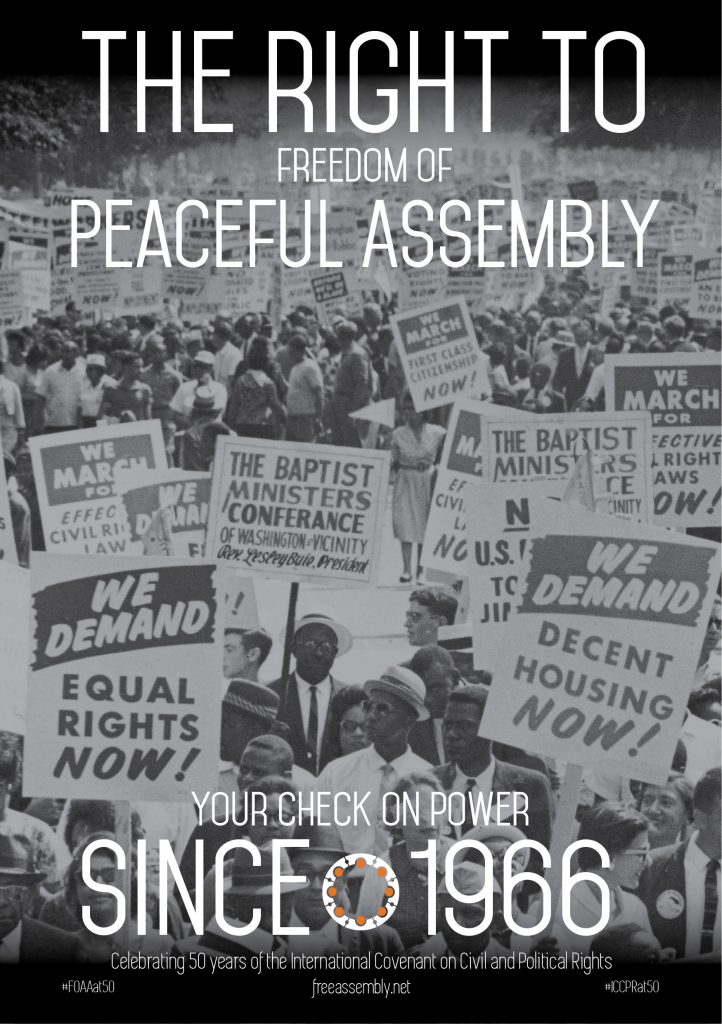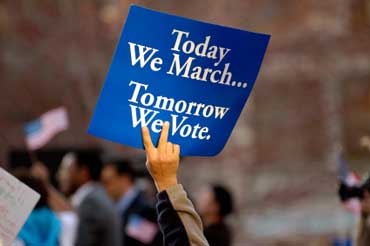
This means that when decisions are made about you right to freedom of assembly and association you must be treated fairly. This means that people working in public bodies should take 'reasonable and appropriate' action to ensure that your right to freedom of assembly and association is protected. This means public authorities should take ‘reasonable and appropriate’ measures to promote our right to freedom of assembly and association, and protect those taking part in meeting from harm from others. If you can think of a way to deal with this situation or decision that is less restrictive to you then you can raise it with the public official as the decision may not be proportionate. You can ask the public official about their decision or action and ask them to tell you how it was lawful, legitimate and proportionate. They have thought about other things they could do, but there is no other way to protect you or other people. Restrictions could be imposed on our right to freedom of assembly and association in the interests of public safety, to prevent crime, to protect health, or to protect the rights of others. There must be a law which allows public officials to take that action or decision.Īny restriction has to be for good reason. If a public official is deciding to restrict your right to freedom of assembly and association, they must go through a test. They must be able to show that their decision is: It has to be balanced against the rights of others and needs of society. Yes – this is a non-absolute right which can be restricted.
FREEDOM OF ASSEMBLY FREE


The right to freedom of assembly and association is about promoting democracy. It also means nobody can force you to join one of these types of groups. It protects your right to be part of ‘associations’ such as clubs, societies, political parties, religious organisations and trade unions. The right to freedom of assembly and association protects your right to organise and take part in peaceful meetings, marches and demonstrations. How might this right be relevant to my life? The right to freedom of assembly and association is protected by Article 11 of the Human Rights Act. Get our training Get our resources Donate Search SearchīIHR's Project on Government Consultations and Human RightsįOCUS: The Covid-19 Vaccine and Human RightsįOCUS:The Mental Heath Act Reform and Human RightsįOCUS: Co-design a human rights support “solution"


 0 kommentar(er)
0 kommentar(er)
